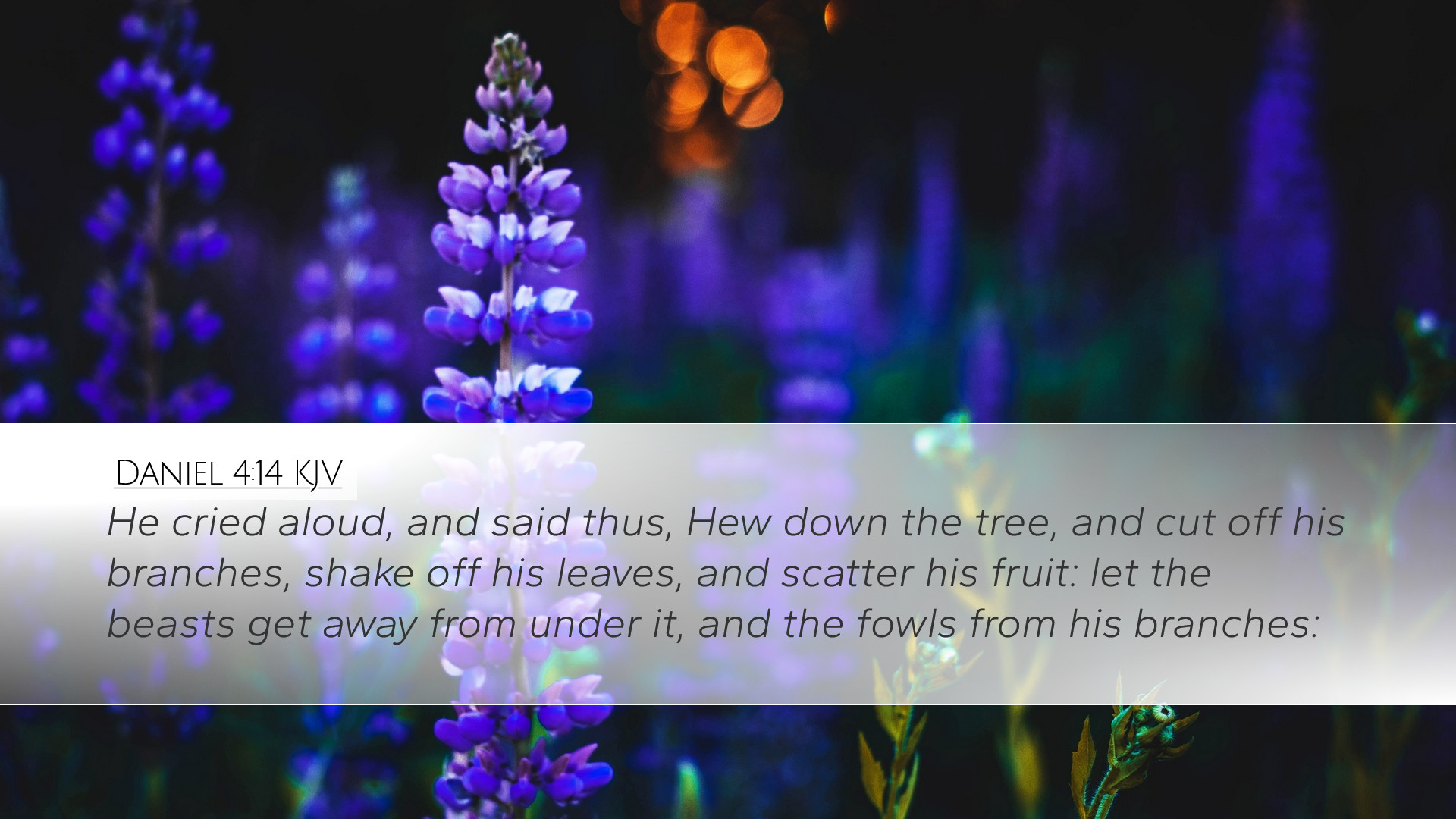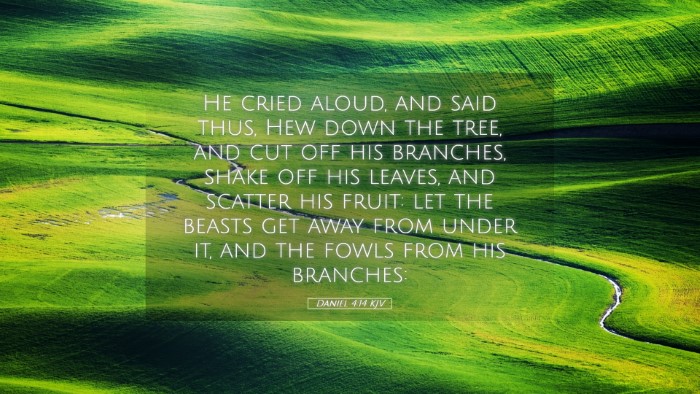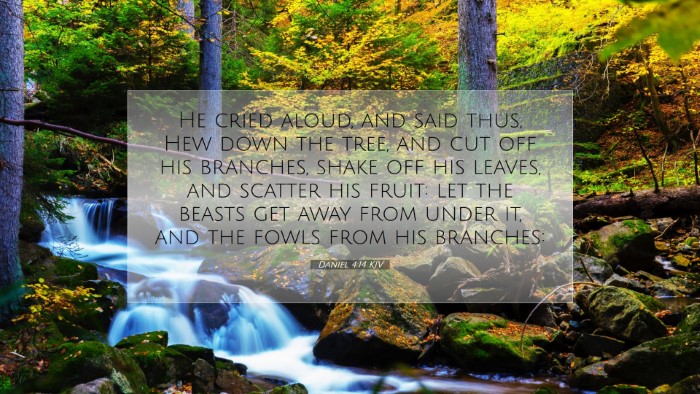Commentary on Daniel 4:14
The Book of Daniel, a pivotal text within the Old Testament, presents profound theological themes and rich narratives. Daniel 4:14 reads: "He cried aloud and said thus: 'Chop down the tree and cut off its branches, strip off its leaves and scatter its fruit; let the beasts flee from under it and the birds from its branches.'" (ESV) This verse is part of a dream experienced by King Nebuchadnezzar, revealing significant truths about divine sovereignty, judgment, and restoration.
Contextual Analysis
This directive to cut down the tree is emblematic of God's judgment upon the king and a broader representation of nations. The chapter unfolds with Nebuchadnezzar reflecting on his personal prosperity and the vast empire he has built, showcasing a tension between human pride and divine authority. This moment aligns with the prophetic tradition where God communicates dire warnings through vivid imagery.
The Symbolism of the Tree
Albert Barnes provides revealing commentary on the symbolism of the tree mentioned in the dream of Nebuchadnezzar. He notes that the tree represents the king himself, as evidenced by its grand stature and the protection it offers to beasts and birds. This is elucidated further in the progression of the narrative, which shows the transition from national pride to impending divine punishment.
Height and Glory
The tree being described as "great" signifies the glory and might of Babylon under Nebuchadnezzar's reign. Matthew Henry notes that trees are often used in scripture to symbolize nations or rulers; thus, the grandeur of the tree reflects the king’s pride and the empire's prosperity.
Destruction and Judgment
When the command is given to "chop down the tree," it signifies an abrupt and inevitable judgment from God. Adam Clarke emphasizes that this divine judgment is not arbitrary but is a corrective measure meant to humble the proud. This act signifies that no matter how grand, human authority is ultimately subordinate to God’s sovereignty.
Divine Sovereignty and Human Pride
This narrative illustrates the overarching theme of God’s sovereignty contrasted with human pride. Nebuchadnezzar’s initial failure to recognize this sovereignty leads to his downfall. As Barnes remarks, God's action against the tree serves as a reminder that every ruler must acknowledge their dependence on God's authority.
The Consequences of Ignorance
The cutting down of the tree also has implications for those who benefit from its shade and sustenance—namely the beasts and birds. Henry reflects that this signifies the distress that follows a fall from power, impacting not just the ruler but also the people and nations dependent on them. This theme of interdependence is crucial in understanding the ramifications of leadership.
Restoration and Hope
Though the command to cut down the tree signifies judgment, it does not culminate in despair. The subsequent verses demonstrate that this judgment is temporary and ultimately leads to restoration. Clarke observes that the hope embedded in divine judgment reminds us that God is not punitive for the sake of punishment but rather seeks repentance and restoration.
The dream serves as both a warning and a promise. The king’s heart will be humbled, leading to the prospect of regaining his throne after recognizing God’s dominion over earthly kingdoms.
Lessons for Today’s Leaders
For contemporary leaders and scholars, this passage invites reflection on the nature of authority and accountability. The humbling of Nebuchadnezzar serves as a profound reminder of the necessity for humility before God. Recognizing our limitations and seeking divine guidance is a continual necessity for those in positions of influence.
The Theological Implications
This passage culminates in theological reflections on God’s governance. It asserts that God is not merely an observer of history but is actively engaged in shaping and directing the affairs of humanity. As articulately noted by Henry, “the Most High rules in the kingdom of men.”
Conclusion
In summary, Daniel 4:14 is rich with insights that profoundly impact our understanding of divine justice, restoration, and the nature of pride. This commentary serves as an invitation for pastors, students, and theologians to engage deeply with the text, recognize its applications for leadership today, and remember the overarching sovereignty of God in all matters.


